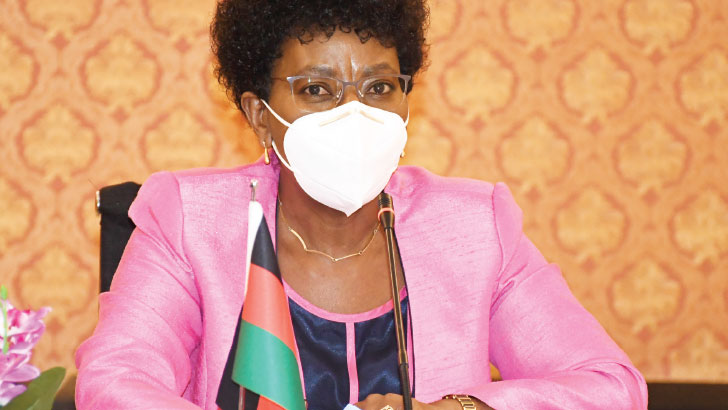Minister of Education Agnes NyaLonje has pledged to put climate change lessons at the centre of not only teaching and learning, but also school construction.
The minister read out Malawi’s pledges in Glasgow, Scotland, where parties to the United Nations climate change treaty are negotiating for ambitious commitments to tackle global warming.

NyaLonje said Malawi, which suffers the worst impacts of climate change, requires financial support from wealthy nations, where massive carbon emissions fuel global warming at the peril of least developed nations, to achieve its goals to put climate change at the centre of learning.
While the ministers were taking turns, reading the commitments from their capitals at the COP26 venue, schoolchildren were marching on the streets of Glasgow to remind the negotiators and world leaders that time to tackle climate change is running out.
The Fridays for Future protests founded by 18-year-old Greta Thunberg, who marched alongside Uganda’s Vanessa Nakate and their peers, personify the power of education to create a generation of environmental protectors and climate justice campaigners just when governments and business captains rush for profits at the peril of the environment.
Taking her turn, NyaLonje said the Malawi Government considers education pivotal to its efforts to tackle climate change in line with the Paris Agreement and global Sustainable Development Goals adopted in 2015.
She stated: “The Government of Malawi pledges to review the school infrastructure construction guidelines by December 2022 and to use cost-effectiveness criteria to climate-proof schools against climate change, including floods, heat and windstorms.
“Malawi also pledges to consultatively review and revise how climate education is delivered in schools by 2024 and embed grassroots, locally relevant activities into the school day, including using local languages, so that all children in school are empowered to take action to improve their environment.”
The Malawi Government also promised to invest in adolescent girls’ access to science, technology, engineering, and mathematics while making climate education science-based and gender-responsive, including using digital solutions that foster equity and resilience in the education system.
Article 12 of the Paris Agreement requires governments to enhance climate education and learning as part of their nationally determined contributions to reducing carbon emissions that fuel climate change.
UK Secretary of State for Education Nadhini Zahawi said: “Investing in climate change education and learning is an economic imperative that makes business sense as we are talking about green jobs. As we re-skill and up-skill for jobs in the green economy, children shouldn’t be left behind.”
Unesco assistant director for education Stefania Gianini pledged the United Nations agency will support the commitments to the next conference of parties in Egypt and beyond because it exists to do so.Malawi started teaching climate change issues in school and embraced climate-smart construction of classrooms in 2013.
However, progress was slow until January 2015 when severe floods affected 1.1 million people and 415 schools in 15 districts, with classrooms in 181 schools playing home to thousands of survivors rendered homeless.
In March 2019, Cyclone Idai affected about 900 people, including about 500 000 children in some 400 schools which were either reduced to rubble or shelter for the displaced population.
Source: The Nation_Monday, November 8, 2021_by James Chavula in Glasgow, Scotland
